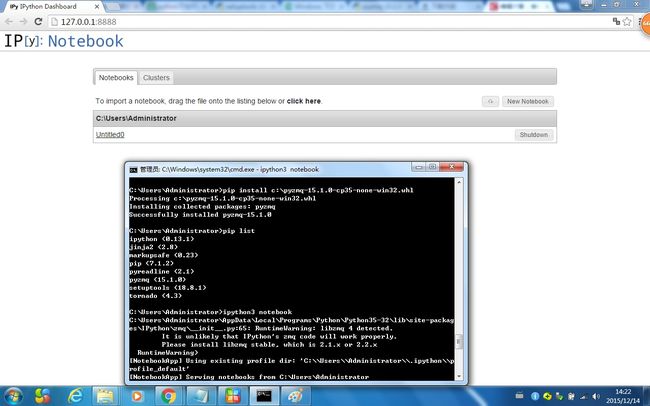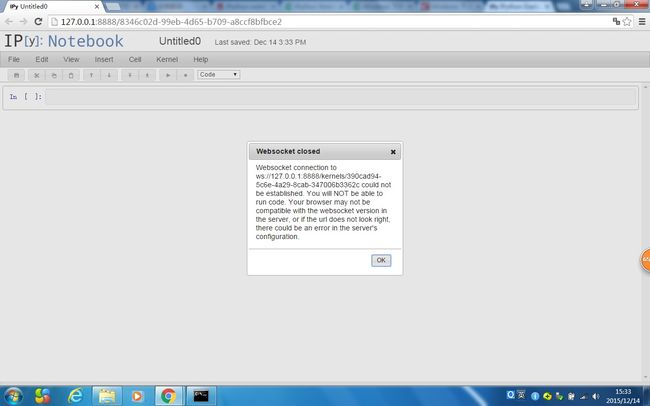- Nuitka打包python脚本
__如风__
python开发语言
Python脚本打包Python是解释执行语言,需要解释器才能运行代码,这就导致在开发机上编写的代码在别的电脑上无法直接运行,除非目标机器上也安装了Python解释器,有时候还需要额外安装Python第三方包,相当麻烦。事实上Python并不适合干这种事,但有时候确实需要Python编写的程序打包给他人一键运行。思路通常都是分析脚本依赖(所有使用到的模块),然后收集相关资源,为了能在目标机器上正确
- 燕大《Python机器学习》实验报告:探索机器学习的奥秘
温冰礼
燕大《Python机器学习》实验报告:探索机器学习的奥秘【下载地址】燕大Python机器学习实验报告下载这份实验报告是燕山大学软件工程专业的学生在进行机器学习实验时所编写的,内容详实,结构清晰,可以直接下载使用。报告中的实验数据和代码均经过验证,确保下载后可以直接应用于实际项目或作为学习参考项目地址:https://gitcode.com/Open-source-documentation-tut
- Python 运用 Matplotlib 绘制动画图的流程
Python编程之道
Python人工智能与大数据Python编程之道pythonmatplotlib开发语言ai
Python运用Matplotlib绘制动画图的流程关键词:Python、Matplotlib、动画图、绘制流程、动画原理摘要:本文详细介绍了使用Python的Matplotlib库绘制动画图的完整流程。从背景知识入手,阐述了Matplotlib动画绘制的目的和适用读者群体,接着深入剖析了核心概念,包括动画的基本原理和架构。通过核心算法原理的讲解和Python源代码示例,展示了如何实现动画绘制。同
- Python Pandas 如何进行数据分组统计
Python编程之道
Python人工智能与大数据Python编程之道pythonpandas网络ai
PythonPandas如何进行数据分组统计关键词:PythonPandas、数据分组、groupby、聚合函数、数据透视表、数据统计、数据分析摘要:本文将深入探讨如何使用PythonPandas库进行高效的数据分组统计操作。我们将从基础概念入手,详细讲解groupby机制的原理和使用方法,介绍各种聚合函数的应用,探讨高级分组技巧,并通过实际案例展示如何解决复杂的数据分析问题。文章还将涵盖性能优化
- Python可视化环境:Matplotlib_Seaborn+Conda配置
Python编程之道
Python人工智能与大数据Python编程之道pythonmatplotlibcondaai
Python可视化环境:Matplotlib/Seaborn+Conda配置关键词:Python可视化、Matplotlib、Seaborn、Conda、环境配置摘要:本文主要探讨了如何利用Conda来配置Python可视化所需的Matplotlib和Seaborn环境。首先介绍了Python可视化的背景和重要性,明确目标读者为想要学习Python可视化的初学者和有一定基础的开发者。接着详细解析了
- Nuitka 打包Python程序
Humbunklung
学海泛舟python开发语言nuitka
文章目录Nuitka打包Python程序**一、Nuitka核心优势**⚙️**二、环境准备(Windows示例)****三、基础打包命令****单文件脚本打包****带第三方库的项目**️**四、高级配置选项****示例:完整命令**⚠️**五、常见问题与解决****六、Nuitkavs其他工具****七、最佳实践建议****八、使用举例**总结Nuitka打包Python程序需要把Python
- python selenium 滚动页面到定位元素
我有一个希哥
pythonselenium前端
用js语句target=driver.find_element_by_id("id")driver.execute_script("arguments[0].scrollIntoView();",target)或target=WebDriverWait(driver,3).until(expected_conditions.presence_of_element_located((By.ID,"i
- pythonselenium时间选择_使用pythonselenium选择特定日期(滚动日期)
xu534328661
所有人我们正在尝试自动化日期选择过程以供参考Clickhere。请参考出生日期和预约日期字段。我们选择日期的方式是不同的。我不知道如何为这两个字段选择日期。你能帮帮我吗?在我已经尽了我的最大努力,它与下面的代码除了日期字段Python版本:2.7硒3.8.0铬:48倍importseleniumimportsysfromseleniumimportwebdriverfromselenium.web
- python与anaconda安装(先安装了python后安装anaconda,基于python已存在的基础上安装anaconda)——逼死强迫症、超详解
苹果酱0567
面试题汇总与解析java开发语言中间件springboot后端
版权声明:本文为CSDN博主「牛斌帅」的原创文章,遵循CC4.0BY-SA版权协议,转载请附上原文出处链接及本声明。原文链接:https://blog.csdn.net/qq_43529415/article/details/100847887目录一、安装python(python3.7.4)1、下载(1)下载1(32位)(2)下载2(64位)2、安装3、配置python环境变量4、检验pytho
- (转)优秀的 python 机器学习库
patrick75
python机器学习python机器学习
优秀的python机器学习库IntroductionThereisnodoubtthatneuralnetworks,andmachinelearningingeneral,hasbeenoneofthehottesttopicsintechthepastfewyearsorso.It’seasytoseewhywithallofthereallyinterestinguse-casestheys
- DAY 2 字符串与比较运算
心落薄荷糖
Python训练营python算法
文章目录题目1:字符串的操作小结题目2:比较运算题目1:字符串的操作题目:定义两个字符串变量,str1赋值为“Hello”,str2赋值为“Python”。将这两个字符串拼接起来(中间加一个空格),并将结果存储在变量greeting中;计算greeting字符串的长度,存储在变量length中;获取greeting字符串的第一个字符,存储在变量first_char中。然后,使用f-string分三
- python学习记录14
彤银浦
学习python
1.字符串的编码和解码不同的计算机之间在信道中传输的信息本质上是二进制数据,因此当你有一串文本需要传输给另外一台电脑时,则需要将这串文本编译为二进制类型的数据。python中的二进制数据类型称为byte类型。将字符串的str类型转变为byte类型称为字符串的编码,将byte类型转变为str类型称为字符串的解码。字符串的编码用到的是encode的方法,语法格式为:string.encode(enco
- Python实例之十大歌手评分
*濒危物种*
算法前端python
实例背景:十大歌手,为丰富校园文化生活,学校拟组织一场歌手大赛,从参赛选手中选拔出十名相对突出的学生,授予“校园十大歌手”称号。比赛之中设置有评委组,每名选手演唱完毕之后会由评委组的十名评委打分。为保证比赛公平公正、防止作弊和恶意打分,计算得分(即平均分)时会先去掉最高分和最低分要求实现:根据每位评委的输入分数,实现计算每位选手得分的功能。【重要步骤提示】定义列表放评委给分找出列表的最高分和最低分
- 如何用Python统计字符串(引用ASCII码)【两种方法】
*濒危物种*
python前端linux
要求实现:根据输入的字符串,统计其中大写字母、小写字母、数字、字符各有多少个【重要步骤提示】0-9的ASCII数字的ASCII码值取值范围为48-57;a-z小写英文字母的取值范围为97-122;A-Z大写英文字母的取值范围为65-90;Len()、append()方法的使用ord()函数获取字符对应的ASCII码值方法一#引到用户输入字符list1=list(input('请输入一行字符:'))
- Python机器学习元学习库higher
音程
机器学习人工智能python机器学习
higher是一个用于元学习(Meta-Learning)和高阶导数(Higher-ordergradients)的Python库,专为PyTorch设计。它扩展了PyTorch的自动微分机制,使得在训练过程中可以动态地计算参数的梯度更新,并把这些更新过程纳入到更高阶的梯度计算中。一、主要用途higher主要用于以下场景:元学习(Meta-Learning)比如MAML(Model-Agnosti
- Python Selenium 滚动到特定元素
Humbunklung
学海泛舟pythonselenium开发语言
文章目录PythonSelenium滚动到特定元素⚙️**1.使用`scrollIntoView()`方法(最推荐)**️**2.结合`ActionChains`移动鼠标(模拟用户行为)****3.使用坐标计算滚动(精确控制像素)**⚠️**4.处理复杂场景的进阶技巧****(1)元素在iframe中****(2)动态加载内容****(3)横向滚动****5.常见问题与解决方案****总结:根据场
- Python 常用正则表达式大全
朱公子的Note
python爬虫正则表达式
你是否在写Python爬虫时,总是卡在“正则提取”这一步?明明页面源码已经拿到,却怎么也匹配不到目标数据……不是提取失败,就是提取不全,搞得调试半天还抓不到核心字段?别急!今天我们就来一次**“正则一网打尽”**,专为爬虫而生的表达式宝典,让你写起爬虫来如虎添翼!在当下数据驱动时代,网络数据是企业的“金矿”,而Python爬虫则是挖掘这金矿的“利器”!从电商价格到社交媒体评论,爬虫技术让数据采集变
- 学校老师课堂点名管理系统带TkinterUI界面
深度学习乐园
oracle数据库
完整源码项目包获取→点击文章末尾名片!基于PythonTkinter的学生管理系统,有最基本的增删改查功能,还有随机点名、顺序点名功能##1、研究现状综述目前,在学生信息管理领域,各大高校面临的难题在于对学生信息管理的效率过低,传统的人工管理造成了资金和劳动力的浪费。因此,大部分学者研究的是针对高校的学生信息或成绩管理系统,而用python语言的也很少,其中大多用的是PyQt5模块。而且,针对低年
- 算法训练营|数组总结
慧泽huize
数据结构算法leetcodepythonc++
时间复杂度:算法执行语句的次数空间复杂度:算法在运行过程中临时占存储空间大小数组(C++):存放在连续内存空间的相同类型固定大小的数据的集合,不能删除,只能覆盖列表(Python):数据可以是不同类型,列表长度可变1.二分查找循环不变量原则,清楚区间定义时间复杂度:O(logn)空间复杂度:O(1)2.双指针法快指针找到新数组元素,慢指针指向新数组下标时间复杂度:O(n)空间复杂度:O(1)3.双
- python正则匹配11个数字_python正则表达式re.match()匹配多个字符方法的实现
小馬锅
python正则匹配11个数字
1.*表示匹配任意多个字符\d*表示匹配任意多个数字字符importretext="123h1elloworld"text1="123Helloworld456"text2="helloworld"res=re.match("\d*",text)res1=re.match("\d*",text1)res2=re.match("\d*",text2)print(res.group())print(r
- 基于MATLAB的资源优化与工期固定-资源均衡分析方法研究【附代码】
拉勾科研工作室
matlab开发语言
算法与建模领域的探索者|专注数据分析与智能模型设计✨擅长算法、建模、数据分析matlab、python、仿真✅具体问题可以私信或查看文章底部二维码✅感恩科研路上每一位志同道合的伙伴!(1)资源均衡优化相关理论与问题分类在现代工程项目中,资源的合理分配和使用是确保项目按时完成、成本可控的关键因素。资源均衡优化作为项目管理中的核心环节,旨在通过调整资源的使用方案,使资源消耗在整个工期内尽可能平稳,避免
- 医学图像增强的层级化模糊与虚拟仪器无参考质量评价研究【附代码】
拉勾科研工作室
计算机视觉图像处理人工智能
算法与建模领域的探索者|专注数据分析与智能模型设计✨擅长算法、建模、数据分析matlab、python、仿真✅具体问题可以私信或查看文章底部二维码✅感恩科研路上每一位志同道合的伙伴!(1)层级模糊隶属度的X光医学图像增强算法针对X光医学图像普遍存在的对比度差、细节模糊等问题,本算法提出了一种基于层级模糊隶属度的增强方法。该方法的核心思想在于利用拉普拉斯金字塔分解图像,并在多尺度下分层计算模糊隶属度
- 【半夜爬起来学python】零基础学习Pygame|第一期|知识点+小球反弹游戏案例
奈樱.
python(pygame)pygame学习游戏pip
一.安装PygamePygame是跨平台Python模块,很多编译器不会向用户提供该模块,需要我们自己安装。安装步骤:打开Pygame官网:www.pygame.org点击PYGAME2.6.0-25JUN,2024下载好之后,解压压缩包,安装路径最好放在c盘里Administrator文件里在菜单栏点击搜索,输入cmd,找到“命令提示符”输入命令pipinstallpygame运行的时候会发现命
- 【Python】Pygame从零开始学习
宅男很神经
python开发语言
模块一:Pygame入门与核心基础本模块将引导您完成Pygame的安装,并深入理解Pygame应用程序的基石——游戏循环、事件处理、Surface与Rect对象、显示控制以及颜色管理。第一章:Pygame概览与环境搭建1.1什么是Pygame?Pygame是一组专为编写视频游戏而设计的Python模块。它构建在优秀的SDL(SimpleDirectMediaLayer)库之上,允许您使用Pytho
- 【python】判断值是否为NaN
MoFe1
python开发语言
importmathdefis_nan(value):returnisinstance(value,float)andmath.isnan(value)#测试print(is_nan(float('nan')))#输出:Trueprint(is_nan(None))#输出:Falseprint(is_nan('abc'))#输出:False
- print(3 or 5)的结果是什么?为什么?
Lauren_Lu
python
print(3or5)的结果是:3原因:在Python中,or是一个逻辑运算符,但当它作用于非布尔类型(比如整数)时,它的行为是:返回第一个为真的值;如果第一个值为假,则返回第二个值。具体分析:3是一个非零整数,在布尔上下文中被视为True所以3or5就是:如果3是True,就返回3;否则返回5由于3是True,所以返回的是3。类似例子:print(0or5)#输出5,因为0被视为Falsepri
- 深度学习实战:基于嵌入模型的AI应用开发
AIGC应用创新大全
AI人工智能与大数据应用开发MCP&Agent云算力网络人工智能深度学习ai
深度学习实战:基于嵌入模型的AI应用开发关键词:嵌入模型(EmbeddingModel)、深度学习、向量空间、语义表示、AI应用开发、相似性搜索、迁移学习摘要:本文将带你从0到1掌握基于嵌入模型的AI应用开发全流程。我们会用“翻译机”“数字身份证”等生活比喻拆解嵌入模型的核心原理,结合Python代码实战(BERT/CLIP模型)演示如何将文本、图像转化为可计算的语义向量,并通过“智能客服问答”“
- [python系列] 创建虚拟环境 venv
en-route
pythonvirtualenv
虚拟环境定义Python中的虚拟环境是一个隔离的运行环境,旨在为每个Python项目提供独立的执行空间,支持在不同的项目中分别管理依赖关系,而不会影响到其他项目或系统的原始Python安装。可以将虚拟环境视为每个Python项目的“独立容器”,每个容器具备以下特点:拥有独立的Python解释器拥有各自独立的包管理和安装的软件包与其他虚拟环境相互隔离允许同一包存在不同版本使用虚拟环境的重要性体现在以
- Python代理池的构建与应用:实现高效爬虫与防封禁策略
程序员威哥
python爬虫开发语言
在进行大规模网络数据抓取时,IP封禁是最常见的反爬虫手段之一。为了应对这一挑战,代理池成为了一个重要工具。通过构建代理池,爬虫程序可以随机切换代理IP,避免同一IP被频繁访问而导致封禁,确保数据抓取任务的稳定性和持续性。本文将详细介绍如何使用Python构建一个高效的代理池,并结合实际应用场景,讲解如何使用代理池提升爬虫的抓取能力和防封禁策略。一、代理池的工作原理代理池的基本工作原理是,爬虫请求时
- Python爬虫实战:用Tushare和Baostock爬取股票历史数据及K线图与技术指标计算
在金融数据分析和量化交易中,股票历史数据的获取是进行技术分析、回测和策略研究的第一步。传统上,投资者需要依赖付费数据服务,然而如今,借助Python强大的爬虫工具和开源数据接口,我们能够轻松地爬取免费的历史股票数据,并结合K线图与技术指标来进行深入分析。Tushare和Baostock是两个非常流行的开源金融数据接口。Tushare提供了丰富的国内外金融数据,特别是A股市场的历史数据和实时数据,而
- 遍历dom 并且存储(将每一层的DOM元素存在数组中)
换个号韩国红果果
JavaScripthtml
数组从0开始!!
var a=[],i=0;
for(var j=0;j<30;j++){
a[j]=[];//数组里套数组,且第i层存储在第a[i]中
}
function walkDOM(n){
do{
if(n.nodeType!==3)//筛选去除#text类型
a[i].push(n);
//con
- Android+Jquery Mobile学习系列(9)-总结和代码分享
白糖_
JQuery Mobile
目录导航
经过一个多月的边学习边练手,学会了Android基于Web开发的毛皮,其实开发过程中用Android原生API不是很多,更多的是HTML/Javascript/Css。
个人觉得基于WebView的Jquery Mobile开发有以下优点:
1、对于刚从Java Web转型过来的同学非常适合,只要懂得HTML开发就可以上手做事。
2、jquerym
- impala参考资料
dayutianfei
impala
记录一些有用的Impala资料
1. 入门资料
>>官网翻译:
http://my.oschina.net/weiqingbin/blog?catalog=423691
2. 实用进阶
>>代码&架构分析:
Impala/Hive现状分析与前景展望:http
- JAVA 静态变量与非静态变量初始化顺序之新解
周凡杨
java静态非静态顺序
今天和同事争论一问题,关于静态变量与非静态变量的初始化顺序,谁先谁后,最终想整理出来!测试代码:
import java.util.Map;
public class T {
public static T t = new T();
private Map map = new HashMap();
public T(){
System.out.println(&quo
- 跳出iframe返回外层页面
g21121
iframe
在web开发过程中难免要用到iframe,但当连接超时或跳转到公共页面时就会出现超时页面显示在iframe中,这时我们就需要跳出这个iframe到达一个公共页面去。
首先跳转到一个中间页,这个页面用于判断是否在iframe中,在页面加载的过程中调用如下代码:
<script type="text/javascript">
//<!--
function
- JAVA多线程监听JMS、MQ队列
510888780
java多线程
背景:消息队列中有非常多的消息需要处理,并且监听器onMessage()方法中的业务逻辑也相对比较复杂,为了加快队列消息的读取、处理速度。可以通过加快读取速度和加快处理速度来考虑。因此从这两个方面都使用多线程来处理。对于消息处理的业务处理逻辑用线程池来做。对于加快消息监听读取速度可以使用1.使用多个监听器监听一个队列;2.使用一个监听器开启多线程监听。
对于上面提到的方法2使用一个监听器开启多线
- 第一个SpringMvc例子
布衣凌宇
spring mvc
第一步:导入需要的包;
第二步:配置web.xml文件
<?xml version="1.0" encoding="UTF-8"?>
<web-app version="2.5"
xmlns="http://java.sun.com/xml/ns/javaee"
xmlns:xsi=
- 我的spring学习笔记15-容器扩展点之PropertyOverrideConfigurer
aijuans
Spring3
PropertyOverrideConfigurer类似于PropertyPlaceholderConfigurer,但是与后者相比,前者对于bean属性可以有缺省值或者根本没有值。也就是说如果properties文件中没有某个bean属性的内容,那么将使用上下文(配置的xml文件)中相应定义的值。如果properties文件中有bean属性的内容,那么就用properties文件中的值来代替上下
- 通过XSD验证XML
antlove
xmlschemaxsdvalidationSchemaFactory
1. XmlValidation.java
package xml.validation;
import java.io.InputStream;
import javax.xml.XMLConstants;
import javax.xml.transform.stream.StreamSource;
import javax.xml.validation.Schem
- 文本流与字符集
百合不是茶
PrintWrite()的使用字符集名字 别名获取
文本数据的输入输出;
输入;数据流,缓冲流
输出;介绍向文本打印格式化的输出PrintWrite();
package 文本流;
import java.io.FileNotFound
- ibatis模糊查询sqlmap-mapping-**.xml配置
bijian1013
ibatis
正常我们写ibatis的sqlmap-mapping-*.xml文件时,传入的参数都用##标识,如下所示:
<resultMap id="personInfo" class="com.bijian.study.dto.PersonDTO">
<res
- java jvm常用命令工具——jdb命令(The Java Debugger)
bijian1013
javajvmjdb
用来对core文件和正在运行的Java进程进行实时地调试,里面包含了丰富的命令帮助您进行调试,它的功能和Sun studio里面所带的dbx非常相似,但 jdb是专门用来针对Java应用程序的。
现在应该说日常的开发中很少用到JDB了,因为现在的IDE已经帮我们封装好了,如使用ECLI
- 【Spring框架二】Spring常用注解之Component、Repository、Service和Controller注解
bit1129
controller
在Spring常用注解第一步部分【Spring框架一】Spring常用注解之Autowired和Resource注解(http://bit1129.iteye.com/blog/2114084)中介绍了Autowired和Resource两个注解的功能,它们用于将依赖根据名称或者类型进行自动的注入,这简化了在XML中,依赖注入部分的XML的编写,但是UserDao和UserService两个bea
- cxf wsdl2java生成代码super出错,构造函数不匹配
bitray
super
由于过去对于soap协议的cxf接触的不是很多,所以遇到了也是迷糊了一会.后来经过查找资料才得以解决. 初始原因一般是由于jaxws2.2规范和jdk6及以上不兼容导致的.所以要强制降为jaxws2.1进行编译生成.我们需要少量的修改:
我们原来的代码
wsdl2java com.test.xxx -client http://.....
修改后的代
- 动态页面正文部分中文乱码排障一例
ronin47
公司网站一部分动态页面,早先使用apache+resin的架构运行,考虑到高并发访问下的响应性能问题,在前不久逐步开始用nginx替换掉了apache。 不过随后发现了一个问题,随意进入某一有分页的网页,第一页是正常的(因为静态化过了);点“下一页”,出来的页面两边正常,中间部分的标题、关键字等也正常,唯独每个标题下的正文无法正常显示。 因为有做过系统调整,所以第一反应就是新上
- java-54- 调整数组顺序使奇数位于偶数前面
bylijinnan
java
import java.util.Arrays;
import java.util.Random;
import ljn.help.Helper;
public class OddBeforeEven {
/**
* Q 54 调整数组顺序使奇数位于偶数前面
* 输入一个整数数组,调整数组中数字的顺序,使得所有奇数位于数组的前半部分,所有偶数位于数组的后半
- 从100PV到1亿级PV网站架构演变
cfyme
网站架构
一个网站就像一个人,存在一个从小到大的过程。养一个网站和养一个人一样,不同时期需要不同的方法,不同的方法下有共同的原则。本文结合我自已14年网站人的经历记录一些架构演变中的体会。 1:积累是必不可少的
架构师不是一天练成的。
1999年,我作了一个个人主页,在学校内的虚拟空间,参加了一次主页大赛,几个DREAMWEAVER的页面,几个TABLE作布局,一个DB连接,几行PHP的代码嵌入在HTM
- [宇宙时代]宇宙时代的GIS是什么?
comsci
Gis
我们都知道一个事实,在行星内部的时候,因为地理信息的坐标都是相对固定的,所以我们获取一组GIS数据之后,就可以存储到硬盘中,长久使用。。。但是,请注意,这种经验在宇宙时代是不能够被继续使用的
宇宙是一个高维时空
- 详解create database命令
czmmiao
database
完整命令
CREATE DATABASE mynewdb USER SYS IDENTIFIED BY sys_password USER SYSTEM IDENTIFIED BY system_password LOGFILE GROUP 1 ('/u01/logs/my/redo01a.log','/u02/logs/m
- 几句不中听却不得不认可的话
datageek
1、人丑就该多读书。
2、你不快乐是因为:你可以像猪一样懒,却无法像只猪一样懒得心安理得。
3、如果你太在意别人的看法,那么你的生活将变成一件裤衩,别人放什么屁,你都得接着。
4、你的问题主要在于:读书不多而买书太多,读书太少又特爱思考,还他妈话痨。
5、与禽兽搏斗的三种结局:(1)、赢了,比禽兽还禽兽。(2)、输了,禽兽不如。(3)、平了,跟禽兽没两样。结论:选择正确的对手很重要。
6
- 1 14:00 PHP中的“syntax error, unexpected T_PAAMAYIM_NEKUDOTAYIM”错误
dcj3sjt126com
PHP
原文地址:http://www.kafka0102.com/2010/08/281.html
因为需要,今天晚些在本机使用PHP做些测试,PHP脚本依赖了一堆我也不清楚做什么用的库。结果一跑起来,就报出类似下面的错误:“Parse error: syntax error, unexpected T_PAAMAYIM_NEKUDOTAYIM in /home/kafka/test/
- xcode6 Auto layout and size classes
dcj3sjt126com
ios
官方GUI
https://developer.apple.com/library/ios/documentation/UserExperience/Conceptual/AutolayoutPG/Introduction/Introduction.html
iOS中使用自动布局(一)
http://www.cocoachina.com/ind
- 通过PreparedStatement批量执行sql语句【sql语句相同,值不同】
梦见x光
sql事务批量执行
比如说:我有一个List需要添加到数据库中,那么我该如何通过PreparedStatement来操作呢?
public void addCustomerByCommit(Connection conn , List<Customer> customerList)
{
String sql = "inseret into customer(id
- 程序员必知必会----linux常用命令之十【系统相关】
hanqunfeng
Linux常用命令
一.linux快捷键
Ctrl+C : 终止当前命令
Ctrl+S : 暂停屏幕输出
Ctrl+Q : 恢复屏幕输出
Ctrl+U : 删除当前行光标前的所有字符
Ctrl+Z : 挂起当前正在执行的进程
Ctrl+L : 清除终端屏幕,相当于clear
二.终端命令
clear : 清除终端屏幕
reset : 重置视窗,当屏幕编码混乱时使用
time com
- NGINX
IXHONG
nginx
pcre 编译安装 nginx
conf/vhost/test.conf
upstream admin {
server 127.0.0.1:8080;
}
server {
listen 80;
&
- 设计模式--工厂模式
kerryg
设计模式
工厂方式模式分为三种:
1、普通工厂模式:建立一个工厂类,对实现了同一个接口的一些类进行实例的创建。
2、多个工厂方法的模式:就是对普通工厂方法模式的改进,在普通工厂方法模式中,如果传递的字符串出错,则不能正确创建对象,而多个工厂方法模式就是提供多个工厂方法,分别创建对象。
3、静态工厂方法模式:就是将上面的多个工厂方法模式里的方法置为静态,
- Spring InitializingBean/init-method和DisposableBean/destroy-method
mx_xiehd
javaspringbeanxml
1.initializingBean/init-method
实现org.springframework.beans.factory.InitializingBean接口允许一个bean在它的所有必须属性被BeanFactory设置后,来执行初始化的工作,InitialzingBean仅仅指定了一个方法。
通常InitializingBean接口的使用是能够被避免的,(不鼓励使用,因为没有必要
- 解决Centos下vim粘贴内容格式混乱问题
qindongliang1922
centosvim
有时候,我们在向vim打开的一个xml,或者任意文件中,拷贝粘贴的代码时,格式莫名其毛的就混乱了,然后自己一个个再重新,把格式排列好,非常耗时,而且很不爽,那么有没有办法避免呢? 答案是肯定的,设置下缩进格式就可以了,非常简单: 在用户的根目录下 直接vi ~/.vimrc文件 然后将set pastetoggle=<F9> 写入这个文件中,保存退出,重新登录,
- netty大并发请求问题
tianzhihehe
netty
多线程并发使用同一个channel
java.nio.BufferOverflowException: null
at java.nio.HeapByteBuffer.put(HeapByteBuffer.java:183) ~[na:1.7.0_60-ea]
at java.nio.ByteBuffer.put(ByteBuffer.java:832) ~[na:1.7.0_60-ea]
- Hadoop NameNode单点问题解决方案之一 AvatarNode
wyz2009107220
NameNode
我们遇到的情况
Hadoop NameNode存在单点问题。这个问题会影响分布式平台24*7运行。先说说我们的情况吧。
我们的团队负责管理一个1200节点的集群(总大小12PB),目前是运行版本为Hadoop 0.20,transaction logs写入一个共享的NFS filer(注:NetApp NFS Filer)。
经常遇到需要中断服务的问题是给hadoop打补丁。 DataNod

